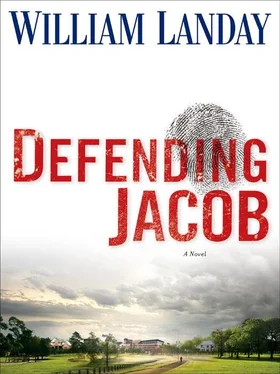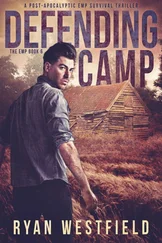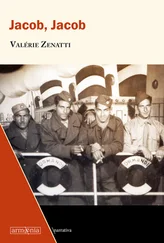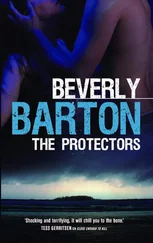William Landay - Defending Jacob
Здесь есть возможность читать онлайн «William Landay - Defending Jacob» весь текст электронной книги совершенно бесплатно (целиком полную версию без сокращений). В некоторых случаях можно слушать аудио, скачать через торрент в формате fb2 и присутствует краткое содержание. Жанр: Криминальный детектив, на английском языке. Описание произведения, (предисловие) а так же отзывы посетителей доступны на портале библиотеки ЛибКат.
- Название:Defending Jacob
- Автор:
- Жанр:
- Год:неизвестен
- ISBN:нет данных
- Рейтинг книги:2.33 / 5. Голосов: 3
-
Избранное:Добавить в избранное
- Отзывы:
-
Ваша оценка:
- 40
- 1
- 2
- 3
- 4
- 5
Defending Jacob: краткое содержание, описание и аннотация
Предлагаем к чтению аннотацию, описание, краткое содержание или предисловие (зависит от того, что написал сам автор книги «Defending Jacob»). Если вы не нашли необходимую информацию о книге — напишите в комментариях, мы постараемся отыскать её.
Defending Jacob — читать онлайн бесплатно полную книгу (весь текст) целиком
Ниже представлен текст книги, разбитый по страницам. Система сохранения места последней прочитанной страницы, позволяет с удобством читать онлайн бесплатно книгу «Defending Jacob», без необходимости каждый раз заново искать на чём Вы остановились. Поставьте закладку, и сможете в любой момент перейти на страницу, на которой закончили чтение.
Интервал:
Закладка:
“Nothing,” Laurie agreed. “There’s absolutely nothing you can say to make it right. But it doesn’t matter what you say; the point is just to reach out to them.”
“Just let them know you’re thinking of them,” Toby echoed. “That’s all anyone can do, let them know you’re thinking of them.”
The last of the women present, Wendy Seligman, asked me, “What do you think, Andy? You have to do this all the time, don’t you? Talk to families after something like this.”
“I don’t say anything, mostly. I just stick to the case. I don’t talk about anything else. The other stuff, there’s not a lot I can do.”
Wendy nodded, disappointed. She considered me a bore, one of those husbands who must be tolerated, the lesser half of a married couple. But she revered Laurie, who seemed to excel in each of the three distinct roles these women juggled, as wife, mother, and only lastly as herself. If I was interesting to Laurie, Wendy presumed, then I must have a hidden side that I did not bother to share-which meant, perhaps, that I considered her dull, not worth the effort that real conversation required. Wendy was divorced, the only divorcee or single mom in their little group, and she was prone to imagine that others studied her for defects.
Toby tried to lighten the mood. “You know, we spent all those years keeping these kids away from toy guns and violent TV shows and video games. Bob and I didn’t even let our kids have water guns, for God’s sake, unless they looked like something else. And even then we did not call them ‘guns’; we called them ‘squirters’ or whatever, you know, like the kids wouldn’t know. Now this. It’s like-” She threw up her hands in comic exasperation.
But the joke fell flat.
“It’s ironic,” Wendy agreed somberly, to make Toby feel heard.
“It’s true.” Susan sighed, again for Toby’s benefit.
Laurie said, “I think we overestimate what we can do as parents. Your kid is your kid. You get what you get.”
“So I could have given the kids the damn water guns?”
“Probably. With Jacob-I don’t know. I just wonder sometimes if it ever really mattered, all the things we did, all the things we worried about. He was always what he is now, just smaller. It’s the same with all our kids. None of them are really all that different from what they were when they were little.”
“Yes, but our parenting styles haven’t changed either. So maybe we’re just teaching them the same things.”
Wendy: “I don’t have a parenting style. I’m just making it up as I go.”
Susan: “Me too. We all are. Except Laurie. Laurie, you probably have a parenting style. Toby, you too.”
“I do not!”
“Oh, yes, you do! You probably read books about it.”
“Not me.” Laurie put up her hands: I’m innocent. “Anyway, the point is, I just think we flatter ourselves when we say we can engineer our kids to be this way or that way. It’s mostly just hardwired.”
The women eyed one another. Maybe Jacob was hardwired, not their kids. Not like Jacob, anyway.
Wendy said, “Did any of you know Ben?” She meant Ben Rifkin, the murder victim. They had not known him. Calling him by his first name was just a way of adopting him.
Toby: “No. Dylan never was friends with him. And Ben never played sports or anything.”
Susan: “He was in Max’s class a few times. I used to see him. He seemed like a good kid, I guess, but who ever knows?”
Toby: “They have lives of their own, these kids. I’m sure they have their secrets.”
Laurie: “Just like us. Just like us at their age, for that matter.”
Toby: “I was a good girl. At their age, I never gave my parents a thing to worry about.”
Laurie: “I was a good girl too.”
I said, intruding, “You weren’t that good.”
“I was until I met you. You corrupted me.”
“Did I? Well, I’m quite proud of that. I’ll have to put it on my resume.”
But the kidding felt inappropriate so soon after the mention of the dead child’s name, and I felt crude and embarrassed before the women, whose emotional sensibilities were so much finer than mine.
There was a moment’s silence then Wendy blurted, “Oh my God, those poor, poor people. That mother! And here we are, just ‘Life goes on, back to school,’ and her little boy will never, never come back.” Wendy’s eyes became watery. The horror of it: one day, through no fault of your own -
Toby came forward to hug her friend, and Laurie and Susan rubbed Wendy’s back.
Excluded, I stood there a moment with a dumb, well-meaning expression-a tight smile, a softening around the eyes-then I excused myself to go check on the security station at the school entrance before things devolved into more weepiness. I did not quite understand the depth of Wendy’s grief for a child she did not know; I took it as yet another sign of the woman’s emotional vulnerability. Also, that Wendy had echoed my own words from the night before, “Life goes on,” seemed to align her with Laurie in a tiff that had only just been resolved. All in all, an opportune moment to take off.
I made my way to the security station that had been set up in the school foyer. It consisted of a long table where coats and backpacks were inspected by hand and an area where Newton cops, two male, two female, swept the kids with metal-detecting wands. Jake was right: the whole thing was ridiculous. There was no reason to think anyone would bring a weapon into the school or that the murderer had any connection to the school at all. The body had not even been found on school grounds. It made sense only as a show for the anxious parents.
As I arrived, the Kabuki ritual of searching each student had come to a stop. In a rising voice, a young girl negotiated with one of the cops while a second cop looked on, his wand held across his chest at port arms as if he might be called upon to club her with it. The trouble, it became clear, was her sweatshirt, which read “F-C-U-K.” The cop had deemed this message “inciteful” and thus, according to the school’s improvised security rules, forbidden. The girl explained to him that the initials stood for a brand of clothing that you could find at any mall, and even if it did suggest a “bad word” how could anyone be incited by it? and she was not giving up her sweatshirt which was very expensive and why should she let some cop throw an expensive sweatshirt in a Dumpster for no good reason? They were at an impasse.
Her adversary, the cop, had a stooped posture. His neck craned forward so that his head rode out in front of his body, giving him a vulturous look. But he straightened when he saw me approach, drawing his head back, causing the skin under his chin to fold over itself.
“Everything okay?” I asked the cop.
“Yes, sir.”
Yes, sir. I hated the military mannerisms adopted by police departments, the bogus military ranks and chain of command and all that. “At ease,” I said, intending it as a joke, but the cop looked down at his feet, abashed.
“Hi,” I said to the girl, who looked like she was in seventh or eighth grade. I did not recognize her as one of Jacob’s classmates, but she might have been.
“Hi.”
“What’s the problem here? Maybe I can help.”
“You’re Jacob Barber’s dad, aren’t you?”
“That’s right.”
“Aren’t you like a cop or something?”
“Just a DA. And who are you?”
“Sarah.”
“Sarah. Okay, Sarah. What’s the trouble?”
The girl paused, uncertain. Then another gush: “It’s just, I’m trying to tell this officer he doesn’t have to take away my sweatshirt, I’ll put it in my locker or I’ll turn it inside out, whatever. Only he doesn’t like what it says, even though no one will even see it, and there’s nothing wrong with it anyway, it’s just a word. This is all so totally-” She left off the last word: stupid.
Читать дальшеИнтервал:
Закладка:
Похожие книги на «Defending Jacob»
Представляем Вашему вниманию похожие книги на «Defending Jacob» списком для выбора. Мы отобрали схожую по названию и смыслу литературу в надежде предоставить читателям больше вариантов отыскать новые, интересные, ещё непрочитанные произведения.
Обсуждение, отзывы о книге «Defending Jacob» и просто собственные мнения читателей. Оставьте ваши комментарии, напишите, что Вы думаете о произведении, его смысле или главных героях. Укажите что конкретно понравилось, а что нет, и почему Вы так считаете.












